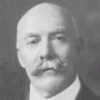In this world, you must be a bit too kind in order to be kind enough.
Pierre Marivaux (1688-1763) French dramatist, novelist
Le Jeu de l’amour et du hasard (1730)
You have to endure what you can’t change.
Marie de France (1160?-1215?) French poet
The Lais of Marie de France
Among life’s perpetually charming questions is whether the truly evil do more harm than the self-righteous and wrong.
Jon Margolis (b. 1940) American journalist, author
(Attributed)
The first rule is, to keep an untroubled spirit; for all things must bow to Nature’s law, and soon enough you must vanish into nothingness, like Hadrian and Augustus. The second is to look things in the face and know them for what they are, remembering that it is your duty to be a good man. Do without flinching what man’s nature demands; say what seems to you most just — though with courtesy, modesty, and sincerity.
[Τὸ πρῶτον μὴ ταράσσου: πάντα γὰρ κατὰ τὴν τοῦ ὅλου φύσιν καὶ ὀλίγου χρόνου οὐδεὶς οὐδαμοῦ ἔσῃ, ὥσπερ οὐδὲ Ἁδριανὸς οὐδὲ Αὔγουστος. ἔπειτα ἀτενίσας εἰς τὸ πρᾶγμα ἴδε αὐτὸ καὶ συμμνημονεύσας ὅτι ἀγαθόν σε ἄνθρωπον εἶναι δεῖ καὶ τί τοῦ ἀνθρώπου ἡ φύσις ἀπαιτεῖ, πρᾶξον τοῦτο ἀμεταστρεπτὶ καὶ εἰπέ, ὡς δικαιότατον φαίνεταί σοι: μόνον εὐμενῶς καὶ αἰδημόνως καὶ ἀνυποκρίτως.]
Marcus Aurelius (AD 121-180) Roman emperor (161-180), Stoic philosopher
Meditations, Book 8, #5 [tr. Staniforth (1964)]
(Source)
This translation was adapted (and significantly shortened) by Norman Vincent Peale in You Can If You Think You Can (1974): "The first rule is to keep an untroubled spirit. The second is to look things in the face and know them for what they are."
Peale's paraphrase significantly changes the meaning (by removing the fatalism and the sense of duty in the face of the actions of great men from the past, and turning it into a general call for calm and clarity). Nonetheless, Peale's version of this translation shows up all over the place, and generally without reference to him.
Original Greek. Alternate translations:First; let it not trouble thee. For all things both good and evil come to pass according to the nature and general condition of the universe, and within a very little while, all things will be at an end; no man will be remembered: as now of Africanus (for example) and Augustus it is already come to pass. Then secondly; fix thy mind upon the thing itself; look into it, and remembering thyself, that thou art bound nevertheless to be a good man, and what it is that thy nature requireth of thee as thou art a man, be not diverted from what thou art about, and speak that which seemeth unto thee most just: only speak it kindly, modestly, and without hypocrisy.
[tr. Casaubon (1634), #4]In the first place, keep yourself easy, for all things are governed by the laws and order of Providence: besides, you'll quickly go the way of all flesh, as Augustus, Adrian, and the rest of the emperors have done before you. Farther, examine the matter from top to bottom, and remember, that the top of your business is to be a good man: therefore whatever the dignity of human nature requires of you, set about it presently, without ifs, or ands: and speak always according to your conscience, but let it be done in the terms of good nature and civility.
[tr. Collier (1701)]This is the chief thing: Be not perturbed, for all things are according to the nature of the universal; and in a little time thou wilt be nobody and nowhere, like Hadrianus and Augustus. In the next place, having fixed thy eyes steadily on thy business, look at it, and at the same time remembering that it is thy duty to be a good man, and what man's nature demands, do that without turning aside; and speak as it seems to thee most just, only let it be with a good disposition and with modesty and without hypocrisy.
[tr. Long (1862)]In the first place, keep yourself easy, for all things are governed by the universal nature. Besides, you'll quickly go the way of all flesh, as Augustus and Hadrian have done before you. Farther, examine the matter from top to bottom, and remember that your business is to be a good man. Therefore, whatever the dignity of human nature requires of you, set about it at once, without "ifs" or "ands"; and speak always according to your conscience, but let it be done in the terms of good nature and modesty and sincerity.
[tr. Zimmern (1887)]In the first place, be not troubled; for all things are according to Universal Nature, and in a little while you will be no one and nowhere, even as Hadrian and Augustus are no more. Next, looking earnestly at the question, perceive its essence, and reminding yourself that your duty is to be a good man, and what it is that man's nature demands, do that without swerving, and speak the thing that appears to you to be most just, provided only that it is with kindness and modesty, and without hypocrisy
. [tr. Farquharson (1944)]The first step. Don't be anxious. Nature controls it all. And before long you'll be no one, nowhere -- like Hadrian, like Augustus. The second step: Concentrate on what you have to do. Fix your eyes on it. Remind yourself that your task is to be a good human being; remind yourself what nature demands of people. Then do it, without hesitation, and speak the truth as you see it. But with kindness. With humility. Without hypocrisy.
[tr. Hays (2003)]
Never regard something as doing you good if it makes you betray a trust, or lose your sense of shame, or makes you show hatred, suspicion, ill will, or hypocrisy, or a desire for things best done behind closed doors.
[Μὴ τιμήσῃς ποτὲ ὡς συμφέρον σεαυτοῦ, ὃ ἀναγκάσει σέ ποτε τὴν πίστιν παραβῆναι, τὴν αἰδῶ ἐγκαταλιπεῖν, μισῆσαί τινα, ὑποπτεῦσαι, καταράσασθαι, ὑποκρίνασθαι, ἐπιθυμῆσαί τινος τοίχων καὶ παραπετασμάτων δεομένου.]
Marcus Aurelius (AD 121-180) Roman emperor (161-180), Stoic philosopher
Meditations, Book 3, #7 [tr. Hays (2003)]
(Source)
Original Greek. Alternate translations:Never esteem of anything as profitable, which shall ever constrain thee either to break thy faith, or to lose thy modesty; to hate any man, to suspect, to curse, to dissemble, to lust after anything, that requireth the secret of walls or veils.
[tr. Casaubon (1634), #8]Don't be fond of any thing, or think that for your interest, which makes you break your word, quit your modesty, be of a dissembling, suspicious, or outrageous humor; which puts you up on hating any person, and inclines you to any practice, which won't bear the light, and look the world in the face.
[tr. Collier (1701)]Never value anything as profitable to thyself which shall compel thee to break thy promise, to lose thy self-respect, to hate any man, to suspect, to curse, to act the hypocrite, to desire anything which needs walls and curtains.
[tr. Long (1862)]Think nothing for your interest which makes you break your word, quit your modesty, hate, suspect, or curse any person, or inclines you to any practice which will not bear the light and look the world in the face.
[tr. Zimmern (1887)]Never esteem anything as of advantage to thee that shall make thee break thy word or lose thy self-respect.
[tr. Morgan, in Bartlett's (1894)]Never value as an advantage to yourself what will force you one day to break your word, to abandon self-respect, to hate, suspect, execrate another, to act a part, to covet anything that calls for walls or coverings to conceal it.
[tr. Farquharson (1944)]Never value the advantages derived from anything involving breach of faith, loss of self-respect, hatred, suspicion, or execration of others, insincerity, or the desire for something which hast to be veiled and curtained.
[tr. Staniforth (1964)]Never value as beneficial to yourself something that will force you one day to break your word, abandon your sense of shame, hate, suspect, or curse someone else, pretend, or desire something that needs the secrecy of walls or curtains.
[tr. Gill (2013)]Value nothing which compels you to break your promise, to abandon your honor, to hate, suspect or curse anyone, to be a hypocrite, or to lust after anything which needs walls or decorations.
[tr. @sentantiq (2019)]Some causes will force you to betray faith, abandon shame, hate or suspect another person, call down curses, put forward explanations, or desire something that requires walls and fences. Do not regard these causes as necessary or beneficial to yourself.
[Source]
The object in life is not to be on the side of the majority, but to escape finding oneself in the ranks of the insane.
Marcus Aurelius (AD 121-180) Roman emperor (161-180), Stoic philosopher
(Spurious)
(Source)
The earliest identifiable citation appears as an epigraph to Leo Tolstoy, Bethink Yourselves!, ch. 8 (1904), in Recollections & Essays [tr. Aylmer Maud (1937)]. A cleaner copy can be found at the Nonresistance.org site. The classic (and presumably abridged) version of Bethink Yourselves!, as translated by Chertkov (1904), does not include any of the copious epigraphs, including this one.
Regardless, this phrase is not clearly found in Marcus Aurelius' Meditations, though other parts of the lengthy epigraph appear to be. If ordered by position, this would presumably fall somewhere from 10.6 to 10.8 (i.e., the preceding and following sentences are more clearly identifiable), but the language of this sentence does not seem to line up.
The empty pageant; a stage play; flocks of sheep, herds of cattle; a tussle of spearmen; a bone flung among a pack of curs; a crumb tossed into a pond of fish; ants, loaded and laboring; mice, scared and capering; puppets, jerking on their strings — that is life. In the midst of it all you must take your stand, good-temperedly and without disdain, yet always aware that a man’s worth is no greater than the worth of his ambitions.
[Πομπῆς κενοσπουδία, ἐπὶ σκηνῆς δράματα, ποίμνια, ἀγέλαι, διαδορατισμοί, κυνιδίοις ὀστάριον ἐρριμμένον, ψωμίον εἰς τὰς τῶν ἰχθύων δεξαμενάς, μυρμήκων ταλαιπωρίαι καὶ ἀχθοφορίαι, μυιδίων ἐπτοημένων διαδρομαί, σιγιλλάρια νευροσπαστούμενα. χρὴ οὖν ἐν τούτοις εὐμενῶς μὲν καὶ μὴ καταφρυαττόμενον ἑστάναι, παρακολουθεῖν μέντοι, ὅτι τοσούτου ἄξιος ἕκαστός ἐστιν, ὅσου ἄξιά ἐστι ταῦτα περὶ ἃ ἐσπούδακεν.]
Marcus Aurelius (AD 121-180) Roman emperor (161-180), Stoic philosopher
Meditations, Book 7, #3 [tr. Staniforth (1964)]
(Source)
Original Greek. Alternate translations:Public shows and solemnities with much pomp and vanity, stage plays, flocks and herds; conflicts and contentions: a bone thrown to a company of hungry curs; a bait for greedy fishes; the painfulness, and continual burden-bearing of wretched ants, the running to and fro of terrified mice: little puppets drawn up and down with wires and nerves: these be the objects of the world. among all these thou must stand steadfast, meekly affected, and free from all manner of indignation; with this right ratiocination and apprehension; that as the worth is of those things which a man doth affect, so is in very deed every man's worth more or less.
[tr. Casaubon (1634)]Gazing after triumphs, and cavalcades; the diversions of the stage; farms well stocked with flocks and herds; contests for victory in the field; these are the little pleasures, and concerns of mortals. Would you have a farther illustration, and see an image of them elsewhere? Fancy then that you saw two or three whelps quarrelling about a bone; fishes scrambling for a bait; pismires in a peck of troubles about the carriage of a grain of wheat; mice frighted out of their wits; and scouring cross the room; poppets dancing upon a wire, etc. And after all, though humane life is but ordinary, and trifling, a wise man must be easy and good-humored, and not grow splenetic, or haughty upon the contemplation. Remembering notwithstanding, that the true bulk and bigness of a man, is to be measured by the size of his business, and the quality of his inclinations.
[tr. Collier (1701)]The idle business of show, plays on the stage, flocks of sheep, herds, exercises with spears, a bone cast to little dogs, a bit of bread into fishponds, laborings of ants and burden-carrying, runnings about of frightened little mice, puppets pulled by strings—[all alike]. It is thy duty then in the midst of such things to show good humor and not a proud air; to understand however that every man is worth just so much as the things are worth about which he busies himself.
[tr. Long (1862)]Gazing after shows, the diversions of the stage, farms well stocked with flocks and herds, contests for victory in the field are all much the same. So, too, a bone thrown to puppies, fishes scrambling for a bait, ants laboriously carrying a grain of wheat, mice frighted out of their wits and running away, puppets danced upon a wire. And in the midst of them a wise man must be good-humored, and not grow haughty in the contemplation. Remembering, notwithstanding, that the true worth of a man is to be measured by the objects he pursues.
[tr. Zimmern (1887)]A procession's vain pomp, plays on a stage, flocks, herds, sham fights, a bone thrown to puppies, a crumb into fishponds, toiling and moiling of ants carrying their loads, scurrying of startled mice, marionettes dancing to strings. Well, then, you must stand up in all this, kindly and not carrying your head proudly; yet understand that every man is worth just so much as the worth of what he has set his heart upon.
[tr. Farquharson (1944)]Pointless bustling of processions, opera arias, herds of sheep and cattle, military exercises. A bone flung to pet poodles, a little food in the fish tank. The miserable servitude of ants, scampering of frightened mice, puppets jerked on strings. Surrounded as we are by all of this, we need to practice acceptance. Without disdain. But remembering that our own worth is measured by what we devote our energy to.
[tr. Hays (2003)]
A candor affected is a dagger concealed.
Marcus Aurelius (AD 121-180) Roman emperor (161-180), Stoic philosopher
Meditations, Book 11, #15 [tr. Staniforth (1964)]
(Source)
Alternate translations:
- "But the affectation of simplicity is nowise laudable." [tr. Casaubon (1634), #14]
- "An affectation of being real, is an untoward pretence." [tr. Collier (1701)]
- "But the affectation of simplicity is like a crooked stick." [tr. Long (1862)]
- "An affectation of sincerity is a very dagger." [tr. Zimmern (1887)]
- "But the affectation of simplicity is like a razor." [tr. Farquharson (1944)]
- "But false straightforwardness is like a knife in the back." [tr. Hays (2003)]
If you are pained by external things, it is not they that disturb you, but your own judgment of them. And it is in your power to wipe out that judgment now.
Marcus Aurelius (AD 121-180) Roman emperor (161-180), Stoic philosopher
Meditations, Book 8, #47 [tr. Long (1862)]
(Source)
Modernized version (see below for original). Alternate translations:
- "If therefore it be a thing external that causes thy grief, know, that it is not that properly that doth cause it, but thine own conceit and opinion concerning the thing: which thou mayest rid thyself of, when thou wilt." [tr. Casaubon (1634), #45]
- "If externals put you into the spleen, take notice 'tis not the thing which disturbs you, but your notion about it: which notion you may dismiss if you please." [tr. Collier (1701)]
- "If thou art pained by any external thing, it is not this thing that disturbs thee, but thy own judgment about it. And it is in thy power to wipe out this judgment now." [tr. Long (1862), original]
- "If anything external vexes you, take notice that it is not the thing which disturbs you, but your notion about it, which notion you may dismiss at once if you please." [tr. Zimmern (1887)]
- "If you suffer pain because of some external cause, what troubles you is not the thing but your decision about it, and this it is in your power to wipe out at once." [tr. Farquharson (1944)]
- "If you are distressed by anything external, the pain is not due to the thing yourself but to your estaimte of it; and this you have the power to revoke at any moment." [tr. Staniforth (1964)]
Observe constantly that all things take place by change, and accustom thyself to consider that the nature of the universe loves nothing so much as to change the things which are and to make new things like them.
Marcus Aurelius (AD 121-180) Roman emperor (161-180), Stoic philosopher
Meditations, Book 4, # 36 [tr. Long (1862)]
(Source)
Alternate translations:
- "Incessantly consider, all things that are, have their being by change and alteration. Use thyself therefore often to meditate upon this, that the nature of the universe delights in nothing more, than in altering those things that are, and in making others like unto them." [tr. Casaubon (1634), #29]
- "Accustom yourself to consider, that whatever is produced, is produced by alteration: that nature loves nothing so much as shifting the scene, and bringing new persons upon the stage." [tr. Collier (1701)]
- "Accustom yourself to consider that whatever is produced, is produced by alteration; that nature loves nothing so much as changing existing things and producing new ones like them." [tr. Zimmern (1887)]
- "Contemplate continually all things coming to pass by change, and accustom yourself to think that Universal Nature loves nothing so much as to change what is and to create new things in their likeness." [tr. Farquharson (1944)]
- "Observe how all things are continually being born of change; teach yourself to see that Nature's highest happiness lies in changing the things that are, and forming new things after their kind." [tr. Staniforth (1964)]
- "Constant awareness that everything is born from change. The knowledge that ther is nothing nature loves more than to alter what exists and make new things like it." [tr. Hays (2003)]
Because your own strength is unequal to the task, do not assume that it is beyond the powers of man; but if anything is within the powers and province of man, believe that it is within your own compass also.
[Μή, εἴ τι αὐτῷ σοὶ δυσκαταπόνητον, τοῦτο ἀνθρώπῳ ἀδύνατον ὑπολαμβάνειν, ἀλλ̓ εἴ τι ἀνθρώπῳ δυνατὸν καὶ οἰκεῖον, τοῦτο καὶ σεαυτῷ ἐφικτὸν νόμιζε.]
Marcus Aurelius (AD 121-180) Roman emperor (161-180), Stoic philosopher
Meditations, Book 6, #19 [tr. Rendall (1901 ed.)]
(Source)
Original Greek. Alternate translations:
- "Do not ever conceive anything impossible to man, which by thee cannot, or not without much difficulty be effected; but whatsoever in general thou canst Conceive possible and proper unto any man, think that very possible unto thee also." [tr. Casaubon (1634), #18]
- "Because you find a Thing very difficult, don't presently conclude that no Man can master it. But whatever you observe proper, and practicable by Another, believe likewise within your own power." [tr. Collier (1701)]
- "If a thing is difficult to be accomplished by thyself, do not think that it is impossible for man: but if anything is possible for man and conformable to his nature, think that this can be attained by thyself too." [tr. Long (1862)]
- "Because you find a thing very difficult, do not at once conclude that no man can master it. But whatever you observe proper and practicable by another, believe likewise within your power." [tr. Zimmern (1887)]
- "Do not think that what is hard for thee to master is impossible for man; but if a thing is possible and proper to man, deem it attainable by thee." [tr. Morgan, in Bartlett's Familiar Quotations (1894)]
- "Because thou findest a thing difficult for thyself to accomplish do not conceive it to be impracticable for others; but whatever is possible for a man and in keeping with his nature consider also attainable by thyself." [tr. Haines (1916)]
- "Do not because a thing is hard for you yourself to accomplish, imagine that it is humanly impossible: but if a thing is humanly possible and appropriate, consider it also to be within your own reach." [tr. Farquharson (1944)]
- "Because a thing is difficult for you, do not therefore suppose it to be beyond mortal power. On the contrary, if anything is possible and proper for men to do, assume that it must fall within your own capacity." [tr. Staniforth (1964)]
- "Not to assume it's impossible because you find it hard. But to recognize that if it's humanly possible, you can do it too." [tr. Hays (2003)]
- "If something is difficult for you to accomplish, do not then think it impossible for any human being; rather, if it is humanly possible and corresponds to human nature, know that it is attainable by you as well." [tr. Needleman/Piazza (2008)]
The longest liver and he who will die soonest lose just the same. For the present is the only thing of which a man can be deprived, if it is true that this is the only thing which he has, and that a man cannot lose a thing if he has it not.
Marcus Aurelius (AD 121-180) Roman emperor (161-180), Stoic philosopher
Meditations, Book 2, #14 [tr. Long (1862)]
(Source)
Alternate translations:
- "That life which any the longest liver, or the shortest liver parts with, is for length and duration the very same, for that only which is present, is that, which either of them can lose, as being that only which they have; for that which he hath not, no man can truly be said to lose." [tr. Casaubon (1634), #12]
- "When the longest and shortest lived persons come to die, their loss is equal: for as I observe, the present is their all, and they can suffer no farther." [tr. Collier (1701)]
- "When the longest and shortest-lived persons come to die, their loss is equal; they can but lose the present as being the only thing they have; for that which he has not, no man can be truly said to lose." [tr. Zimmern (1887)]
- "The longest-lived and the shortest-lived man, when they come to die, lose one and the same thing." [tr. Morgan, in Bartlett's Familiar Quotations (1894)]
- "The longest-lived and the soonest to die have an equal loss; for it is the present alone of which either will be deprived, since (as we saw) this is all he has and a man does not lose what he has not got." [tr. Farquharson (1944)]
- "When the longest- and shortest-lived of us come to die, their loss is precisely equal. For the sole thing of which any man can be deprived is the present; since this is all he owns, and nobody can lose what is not his." [tr. Staniforth (1964)]
- "The longest-lived and those who will die soonest lose the same thing. The present is all that they give up, since that is all you have, and what you do not have, you cannot lose." [tr. Hays (2003)]
The happiness of your life depends upon the quality of your thoughts: therefore, guard accordingly, and take care that you entertain no notions unsuitable to virtue and reasonable nature.
Marcus Aurelius (AD 121-180) Roman emperor (161-180), Stoic philosopher
Meditations, Book 3, #9 [tr. Collier (1701)]
(Source)
Alternate translations:
- "Use thine opinative faculty with all honour and respect, for in her indeed is all: that thy opinion do not beget in thy understanding anything contrary to either nature, or the proper constitution of a rational creature." [tr. Casaubon (1634), #10]
- "Reverence the faculty which produces opinion. On this faculty it entirely depends whether there shall exist in thy ruling part any opinion inconsistent with nature and the constitution of the rational animal." [tr. Long (1862)]
- "Hold in honor your opinionative faculty, for this alone is able to prevent any opinion from originating in your guiding principle that is contrary to Nature or the proper constitution of a rational creature." [tr. Zimmern (1887)]
- "Reverence your faculty of judgement. On this it entirely rests that your governing self no longer has a judgement disobedient to Nature and to the estate of a reasonable being." [tr. Farquharson (1944)]
The mind I love must have wild places, a tangled orchard where dark damsons drop in the heavy grass, an overgrown little wood, the chance of a snake or two, a pool that nobody’s fathomed the depth of, and paths threaded with flowers planted by the mind.
HAYWOOD: There are those in our own country, too, who today speak of the protection of country, of survival. A decision must be made, in the life of every nation, at the very moment when the grasp of the enemy is at its throat, when it seems the only way to survive is to use the means of the enemy, to rest survival upon what is expedient. To look the other way. Only the answer to that is: Survival as what?
Well versed in the natural sciences and mathematics. She speaks seven languages proficiently. Were she not a woman one would consider her to be an intellectual.
The country has charms only for those not obliged to stay there.
Edouard Manet (1832-1883) French painter, sculptor
(Attributed)
Only free men can negotiate; prisoners cannot enter into contracts. Your freedom and mine cannot be separated.
Often the difference between a successful person and a failure is not one’s better abilities or ideas, but the courage that one has to bet on one’s ideas, to take a calculated risk
Maxwell Maltz (1899-1975) American author, dramatist, plastic surgeon
(Attributed)
I have never in my life learned anything from any man who agreed with me.
Dudley F. Malone (1882-1950) American diplomat
(Attributed)
There may be, in the absence of censorship, some risk that some persons … may possibly get hurt. But … there is risk — and indeed certainty — that every day many people will be killed by automobiles, and yet we leave automobiles on our streets. … [F]ree speech is surely just as vital to our society as the automobile. Risk there is in all life, and we must take this risk on the side of freedom. That is the glory of our way of life. Censorship is abhorrent to Americanism.
Do not consider it proof just because it is written in books, for a liar who will deceive with his tongue will not hesitate to do the same with his pen. They are utter fools who accept a thing as convincing proof simply because it is in writing.
This is my rule of married life: it’s better to be happy than to be right.
Tom Magliozzi (1937-2014) American mechanic, radio personality [of Click & Clack, the Tappet Brothers]
(Attributed)
The Church says the Earth is flat, but I know that it is round. For I have seen the shadow on the Moon, and I have more faith in a shadow than in the Church.
Ferdinand Magellan (1480-1521) Portuguese explorer
(Attributed)
Probably spurious. No mention can be found prior to Ingersoll tentatively attributing it to Magellan in 1873.
I’ve written my best things when I’m upset. What’s the point of sitting down and notating your happiness?
Madonna (b. 1958) American singer, actress [b. Louise Veronica Ciccone]
(Attributed)
A popular government without popular information, or the means of acquiring it, is but a prologue to a farce or a tragedy; or, perhaps both. Knowledge will forever govern ignorance. And a people who mean to be their own governors must arm themselves with the power which knowledge gives.
It is right to be contented with what we have, but never with what we are.
Sir James Mackintosh (1765-1832) Scottish administrator, jurist, philosopher
(Attributed)
TV is passive; computers are active. TV is just a really, really good screensaver.
William "Bill" Machrone (1946-2016) American technology columnist, editor
PC Week
I find that doing the will of God leaves me with no time for disputing about His plans — I do not say for thinking about them.
Many politicians are in the habit of laying down as self-evident the proposition that no people ought to be free till they are fit to use their freedom. This maxim is worthy of the fool in the old story who resolved not to go into the water till he had learned to swim! If men are to wait for liberty till they become wise and good in slavery, they may indeed wait forever.
Thomas Babington Macaulay (1800-1859) English writer and politician
“John Milton,” Edinburgh Review (Aug 1825)
(Source)
Hampden, on the other hand, was for vigorous and decisive measures. When he drew the sword, as Clarendon has well aid, he threw away the scabbard. He had shown that he knew better than any public man of his time how to value and how to practice moderation. He knew that the essence of war is violence, and that moderation in war is imbecility.
Thomas Babington Macaulay (1800-1859) English writer and politician
“John Hampden,” Essays Contributed to the Edinburgh Review, Vol. 1 (1843)
(Source)
Review of Lord Nugent, Some Memorials of John Hampden, His Party, and His Times (1831).
I am a confirmed believer in blessings in disguise. I prefer them undisguised when I myself happen to be the person blessed; in fact I can hardly recognize a blessing in disguise except when it is bestowed upon someone else.
There is a major disaster when a person allows some success to become a stopping place rather than a way station on to a larger goal. It often happens that an early success is a
greater moral hazard than an early failure.Halford E. Luccock (1885-1960) American theologian
(Attributed)
Ingenious fools too clever to be wise, though brilliant at inventing the most ingenious reasons for their fatuous beliefs. But, tiresome as intellectuals can be, even they are probably much less menacing and pernicious to the world than anti-intellectuals.
[C]ommunication [can be] more difficult than we may think. We are all serving life sentences of solitary confinement within our bodies; like prisoners, we have, as it were, to tap in awkward code to our fellow men in their neighboring cells.
Many worthy people, and many good books, with no doubt the best intentions, … have represented a life of sin as a life of pleasure; they have pictured virtue as self-sacrifice, austerity as religion. Even in everyday life we meet with worthy people who seem to think that whatever is pleasant must be wrong, that the true spirit of religion is crabbed, sour, and gloomy; that the bright, sunny, radiant nature which surrounds us is an evil and not a blessing,
The bestialities unleashed in Bosnia, Rwanda, and Chechnya provide evidence, if such be needed, that barbarism is just below the integument in all human societies, whatever their purported moral values or avowed religious persuasions.
Bernard Lown (1921-2021) Lithuanian-American cardiologist, inventor, Nobel Prize Laureate
Technology Review (18 Aug 1995)
This imputation of inconsistency is one to which every sound politician and every honest thinker must sooner or later subject himself. The foolish and the dead alone never change their opinions.
James Russell Lowell (1819-1891) American diplomat, essayist, poet
“Abraham Lincoln” (1864), My Study Windows (1871)
(Source)
It’s good to have money and the things that money can buy, but it’s good, too, to check up once in a while and make sure you haven’t lost the things money can’t buy.
George Horace Lorimer (1867-1937) American journalist, author, magazine editor
Old Gorgon Graham: More Letters from a Self-Made Merchant to His Son, ch. 12 (1903)
(Source)
Mistakes are part of the dues one pays for a full life.
Sophia Loren (b. 1934) Italian actress [Sofia Costanza Brigida Villani Scicolone]
(Attributed)
I’m furious about the Women’s Liberationists. They keep getting up on soapboxes and proclaiming that women are brighter than men. That’s true, but it should be kept very quiet or it ruins the whole racket.
Anita Loos (1893-1981) American screenwriter, dramatist, author
London Observer (30 Dec. 1973)
Men of genius are often dull and inert in society, as a blazing meteor, when it descends to earth, is only a stone.
We judge ourselves by what we feel capable of doing, while others judge us by what we have already done.
The Laws of Nature are just, but terrible. There is no weak mercy in them. Cause and consequence are inseparable and inevitable. The elements have no forbearance. The fire burns, the water drowns, the air consumes, the earth buries. And perhaps it would be well for our race if the punishment of crimes against the Laws of Man were as inevitable as the punishment of crimes against the Laws of Nature — were Man as unerring in his judgments as Nature.
If we could read the secret history of our enemies, we should find in each man’s life sorrow and suffering enough to disarm all hostility.
Henry Wadsworth Longfellow (1807-1882) American poet
“Table Talk,” Drift-Wood (1857)
(Source)
More discussion of this quotation here: If We Could Read the Secret History of Our Enemies, We Should Find in Each Man’s Life Sorrow and Suffering Enough To Disarm All Hostility – Quote Investigator.
Since everything in life is but an experience perfect in being what it is, having nothing to do with good or bad, acceptance or rejection, one may well burst out in laughter.
Long Chen Pa (fl. 14th C.) Tibetan Dzogchen master
(Attributed)
Don’t loaf and invite inspiration; light out after it with a club, and if you don’t get it you will nonetheless get something that looks remarkably like it.
Jack London (1876-1916) American novelist
“Getting into Print,” The Editor Magazine (1903)
Often misquoted as "You can't wait for inspiration. You have to go after it with a club." Reprinted in J. Reeve, Practical Authorship (1905).
If you don’t play to win, why bother to keep score?
Adolph Rupp (1901-1977) American college basketball coach
Comment (11 Jun 1958)
Rupp frequently returned to this phrase, usually in response to someone quoting to him from Grantland Rice's "Alumnus Football" (paraphrased, "It doesn't matter whether you win or lose, but how you play the game").
Variations:Rupp wasn't necessarily the originator of this thought. Clair Bee, another US college basketball coach, said during the CCNY Point Shaving Scandal that ended his career, "If the kids aren't playing for keeps, why keep score?" (20 Feb 1951).
- "If it doesn't matter who wins or loses, then what in the hell is that scoreboard doing up there?"
- "If it doesn't matter, then why does every school have a scoreboard? If it doesn't matter who wins why do 25,000 football fans follow a team 400 miles and sit in eight inches of snow to watch the game?" [Source]
- "If winning isn't so important, why do they keep score?" [Source]
Sometimes attributed to Vince Lombardi.
More discussion of this quotation: The Big Apple: “If winning isn’t important, why keep score?”
Possibly if a true estimate were made of the morality and religions of the world, we should find that the far greater part of mankind received even those opinions and ceremonies they would die for, rather from the fashions of their countries and the constant practice of those about them than from any conviction of their reasons.
There is no greater mistake than to try to leap an abyss in two jumps.
David Lloyd George (1863-1945) Welsh politician, statesman, UK Prime Minister (1916-22)
War Memoirs of David Lloyd George, Vol. 2, ch. 24 (1933)
Not original with Lloyd George, but usually attributed to him. For more information, see here. Variants:
- "Don’t be afraid to take a big step. You can’t cross a chasm in two small jumps."
- "The most dangerous thing in the world is to leap a chasm in two jumps."
- "Anything can be achieved in small, deliberate steps. But there are times you need the courage to take a great leap; you can't cross a chasm in two small jumps."
- "There is nothing more dangerous than to leap a chasm in two jumps."
People these days are reluctant to read the canonical texts, but they love fiction. Not all fiction, mind you, for they are sick of exemplary themes and far prefer the obscene and fantastic. How low contemporary morals have sunk! Anyone concerned about public morality will want to retrieve the situation.”
Li Yu (1610-1680) Chinese playwright, novelist, publisher
The Carnal Prayer Mat (c. AD 1657)




































